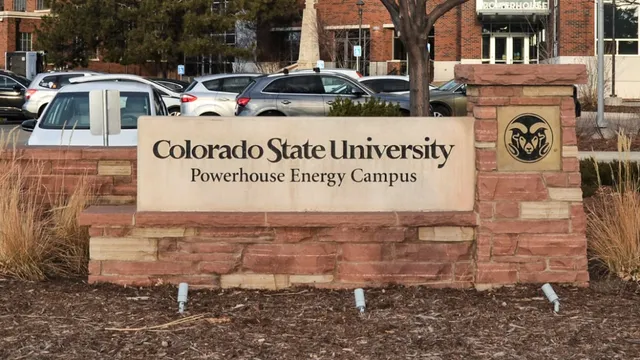
Visas revoked for multiple Colorado students amid ongoing protests
2025-04-02 20:57- Nine international students at two Colorado universities had their F-1 student visas revoked by the Department of Homeland Security.
- The exact reasons for the visa revocations remain unclear, and no specific allegations against the students have been disclosed.
- The episode has sparked concerns regarding due process and the treatment of international students involved in campus protests.
Express your sentiment!
Insights
In recent events in the United States, specifically at the University of Colorado and Colorado State University, a total of at least nine international students have faced visa revocations by the Department of Homeland Security. The two institutions reported on Tuesday that CU had four students and CSU had five whose F-1 student visas were taken away, primarily impacting students at CU's Boulder and Colorado Springs campuses. These visa revocations have raised significant concerns among the affected students and their communities as it remains unclear why the visas were revoked and if any of these students are linked to unlawful activities. The revocations were acknowledged by the Department of State, though no specific reasons have been provided for each case. Moreover, the state department emphasized their policy of maintaining privacy and visa confidentiality, explaining that they generally do not discuss actions regarding individual cases. Despite this, there has been escalating scrutiny regarding the broader implications of such actions, especially given that last week, Secretary of State Marco Rubio noted that up to 300 student visas had been revoked, possibly related to campus protests. Rubio further indicated that students could face visa revocation if they had misrepresented their intentions while applying for visas or if their actions could harm the foreign policy interests of the U.S. Following the initial reports, Colorado State University revealed an additional visa revocation, bringing the total number to six. Both CU and CSU declined to disclose the identities of the impacted students due to privacy concerns, which has fuelled speculation and anxiety among international students regarding their standing in the U.S. educational system. Notably, other local universities, such as Colorado School of Mines, Metropolitan State University, and the University of Denver, confirmed that none of their students were among those affected. As the situation evolves, it raises critical discussions about the rights of international students, the responsibilities of educational institutions, and the extent of government intervention in regulating student visas. Many advocacy groups and legal experts are urging transparency from both educational institutions and government authorities to ensure that international students' rights are upheld and that due process is respected amid this unprecedented scenario. The potential connection of these visa revocations to students' participation in campus protests prompts deeper inquiries into free speech and academic freedom in U.S. educational environments.
Contexts
International student visa revocation in the USA is a critical issue that affects thousands of students annually. The reasons for visa revocation can range from administrative errors to non-compliance with visa regulations. One of the primary reasons for the revocation of student visas is the failure to maintain full-time enrollment status. Students on F-1 visas are required to be enrolled in a full course of study, and a drop in course load without proper justification can lead to visa status complications. Moreover, students must ensure their enrollment is with a SEVP-approved institution to remain in good standing. Failure to comply with these requirements often results in immediate visa revocation. Another significant factor contributing to student visa revocation is academic performance. The US immigration authorities closely monitor the academic progress of international students, and insufficient grades or failure to meet academic standards can be grounds for revocation. Students are expected to maintain a minimum grade point average and make satisfactory academic progress toward completing their educational programs. If a student's academic performance is deemed unsatisfactory, educational institutions are required to notify the authorities, leading to a potential revocation of the student’s visa. Additionally, engaging in unauthorized employment violates the terms of the student visa and is a common reason for revocation. Students on F-1 visas are allowed limited employment opportunities – primarily on-campus jobs or certain off-campus work through Curricular Practical Training (CPT) or Optional Practical Training (OPT). Any employment beyond these allowances is considered illegal and can trigger revocation proceedings. Students must be diligent in adhering to the regulations surrounding their employment status, as even inadvertent violations can lead to severe consequences. Lastly, changes in personal circumstances, such as a criminal offense or failure to update personal information with immigration authorities, can also prompt the revocation of student visas. Immigration officials are keen to uphold the integrity of the visa process, and any actions that raise concerns about a student's character or compliance with visa conditions can result in immediate scrutiny and potential visa cancellation. In summary, it is essential for international students to remain informed about their responsibilities and maintain compliance with all visa requirements to avoid revocation.